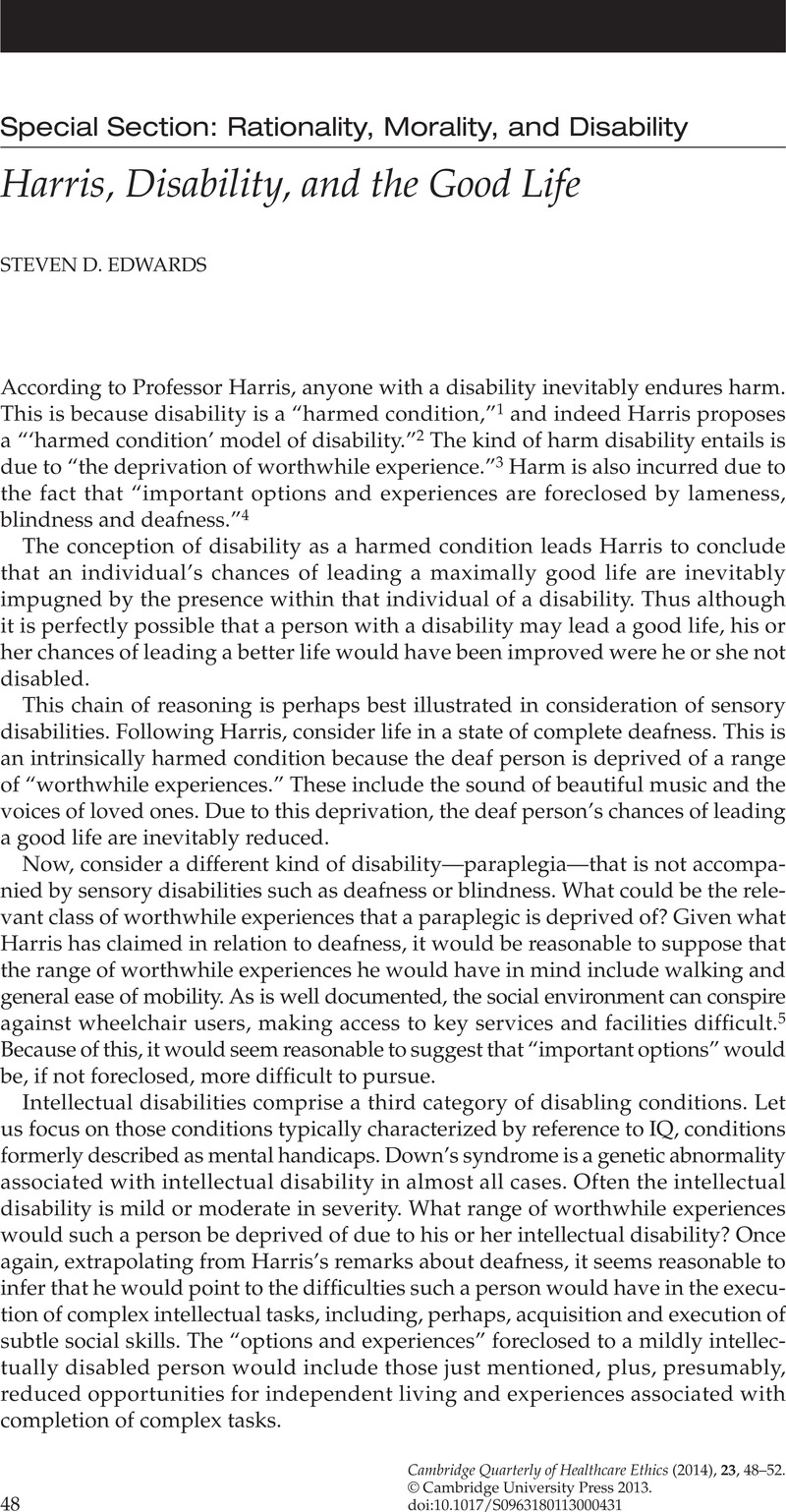Article contents
Harris, Disability, and the Good Life
Published online by Cambridge University Press: 06 November 2013
Abstract

- Type
- Special Section: Rationality, Morality, and Disability
- Information
- Copyright
- Copyright © Cambridge University Press 2013
References
Notes
1. Harris, J. Is there a coherent social conception of disability? Journal of Medical Ethics 2000;26(2): 95–100, at 99.Google Scholar
2. See note 1, Harris 2000.
3. See note 1, Harris 2000, at 98.
4. See note 1, Harris 2000.
5. See, e.g., Oliver, M. The Politics of Disablement. Macmillan: London; 1990Google Scholar; Toombs, SK. Sufficient unto the day: A life with multiple sclerosis. In: Toombs, SK, Barnard, D, Carson, RA, eds. Chronic Illness, from Experience to Policy. Indianapolis: Indiana University Press; 1995, at 3–22.Google Scholar
6. See note 1, Harris 2000, at 98.
7. See also Edwards, SD. Disability, Definition, Value, Identity. Oxford: Radcliffe Publishing; 2005.Google Scholar
8. Parfit, D. Reasons and Persons. Oxford: Oxford University Press; 1984Google Scholar; Brock, D. Quality of life measures in healthcare and medical ethics. In: Nussbaum, M, Sen, A, eds. The Quality of Life. Oxford: Clarendon Press; 1993: 95–132.CrossRefGoogle Scholar
9. Griffin, J. Well-Being: Its Meaning, Measurement, and Moral Importance. Oxford: Clarendon Press; 1986, at 70.Google Scholar
10. Aristotle. Nicomachean Ethics. Thompson JAK, trans. London: Penguin; 1953.
- 1
- Cited by




